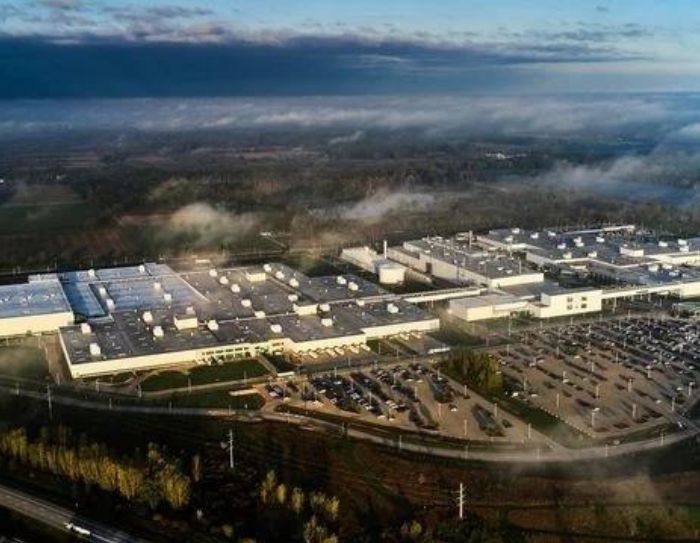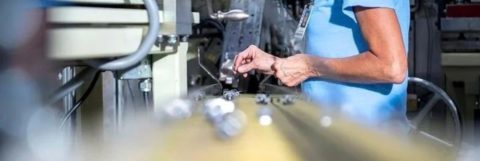Crain’s Detroit Business
Dec. 22, 2022
Kurt Nagl
As the manufacturing sector in Michigan goes into holiday break, executives, industry experts and economic development officials will be watching a few key trends in 2023.
All eyes are on electrification and the supply chain challenges and opportunities that go along with the transformation, with the backdrop of recession fears.
Here’s what we will be keeping tabs on:
More EV, Battery Investment
The world’s top automakers have committed hundreds of billions of dollars toward electrification over the next decade. While Michigan has had some wins — Our Next Energy’s $1.6 billion factory and General Motors Co.’s $6.5 billion investment — and some big losses, like Ford Motor Co.’s multi-billion dollar bet down south — plenty more investment still needs a home. Ford and China’s Contemporary Amperex Technology Co. Ltd. are considering a battery plant Michigan, and the state is in contention for Stellantis NV’s third battery plant in North America, the company confirmed to Crain’s. An announcement is expected early next year.

General Motors Co. is planning to construct a $2.5 billion electric vehicle battery manufacturing plant adjacent to its Delta Township Assembly Plant west of Lansing. John F. Martin for General Motors Co.
Insourcing
Electric vehicles have far fewer parts than traditional gasoline-powered cars, and automakers are looking at ways to bring traditional supplier work back in house to preserve jobs. That means a shrinking supply base.
“It takes 40 percent less labor to make an electric car,” Ford CEO Jim Farley said at an event in Detroit last month. “So as a family company, we have to insource so that everyone has a role.”
Kristin Dziczek, automotive policy adviser with the Federal Reserve Bank of Chicago’s Detroit Branch, said automakers are looking at owning more than just the battery value chain.
“With motors and transaxles, there’s big opportunities for automakers to bring those into existing powertrain facilities and hold over some jobs,” Dziczek told Crain’s.
Consolidation
With less work comes fewer companies. Legacy automotive suppliers are employing different M&A and spinoff strategies to stay competitive in a changing industry. BorgWarner Inc., which has vowed to shed its internal combustion engine business, announced earlier this month it would spin off its fuel systems and aftermarket segments to further hone in on EVs. Meanwhile, American Axle & Manufacturing Inc. is trying to keep its lucrative internal combustion engine strong with opportunistic M&A, while planting seeds for an EV future through strategic acquisitions.
The problem with staying tied to gas engines, Dziczek said, is there will come a point where the value proposition reverses.
“They are still going to be making internal combustion vehicles, but the fuel economy requirements are going to be more stringent,” Dziczek said of automakers. “And you have to invest, if you’re a supplier, but you’re probably investing into shrinking volumes on those programs.”
Onshoring
The global supply chain is fragile and fickle. Nothing has hammered that home more than the COVID-19 pandemic. In its wake, automakers have re-evaluated supply lines, and suppliers have responded by bringing the goods closer to home. Incentives from the Inflation Reduction Act certainly have greased the wheel.
Lear Corp. is building a new $80 million EV parts plant in Orion Township, Magna International Inc. is making more than $500 million of expansions in Michigan and BorgWarner is aiming to expand manufacturing in Michigan. And it’s not just the big suppliers.
Supplier Strain
While automakers enjoyed healthy profits through much of the pandemic, suppliers bore the brunt of financial pain. For the most part, and out of necessity, automakers helped make suppliers whole with cost pass-throughs and renegotiations, said Steven Wybo, senior restructuring and management consultant at Birmingham-based Riveron Consulting LLC.
With automakers’ balance sheets not looking quite as rosy and new car sales volumes yet to bounce back from pre-pandemic levels, relief for suppliers might be harder to come by in 2023.
“Free money ran out, prices went up and volumes didn’t snap back like everyone was hoping,” Wybo said. “It’s going to be more distress because there’s a lot of companies that are kind of just limping along here, biding time.”

